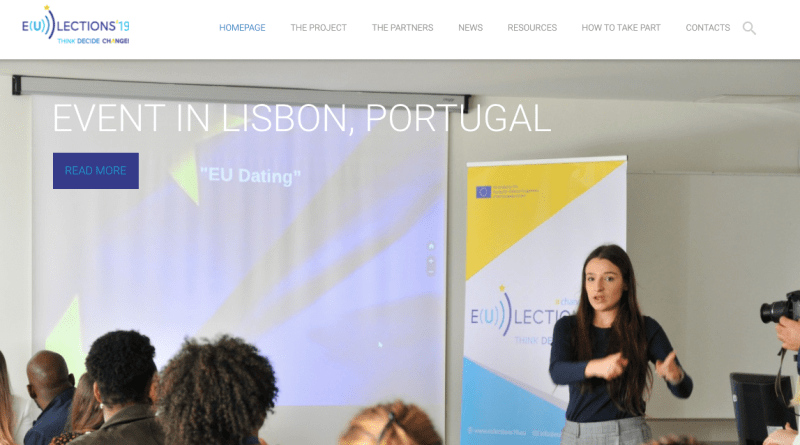
The project E(u)lections’19: THINK, DECIDE, CHANGE! has come to an end, after two years of countless activities which promoted the discussion on the future of Europe.
We closed in June 2021 the roadshow of workshops and debates on the future of the European Union started in 2019 with the project E(u)lections’19: THINK, DECIDE, CHANGE! These have been two years of reflection on the European project, the participation of citizens in building the Union and the challenges and opportunities for the future, in several cities in Portugal, Italy and the Netherlands, with diverse audiences, mainly young people and students. To follow the results of this reflection consult the project website and to learn more about the EU, access the resources available here. A summary of the activities is available in the Information Template.
About the project
On 1st March 2017, the President of the European Commission, Jean Claude Juncker, presented a “White Paper on the Future of Europe: Reflections and Scenarios for the EU27” with the aim of creating a strategic vision for the European Union for the next decade.
Following this presentation, on 25th March, along with the celebrations of the EU’s 60th anniversary held in Rome, a public debate was launched planning several activities extended until the elections to the European Parliament in 2019.
It is within this European framework that the E(u)lections´19: THINK, DECIDE, CHANGE! project arised, recognizing both the need to engage in a wider debate on the future of Europe and to discuss the European citizenship challenges faced by European citizens.
The aim of the project was to make young people THINK (why vote in the European elections? Who represents me in the European Parliament?) DECIDE (why it is important to vote?) and CHANGE (How can I exercise my European citizenship?) regarding the European Union and its future.
The E(u)lections’19 project was promoted by CEI-Iscte, in partnership with the European Association of Young Educators (Portugal), Stichting CAAT Projects (The Netherlands) and Fondazione Flaminia (Italy).
This project was co-financed by the Europe for Citizens Programme of the European Union.